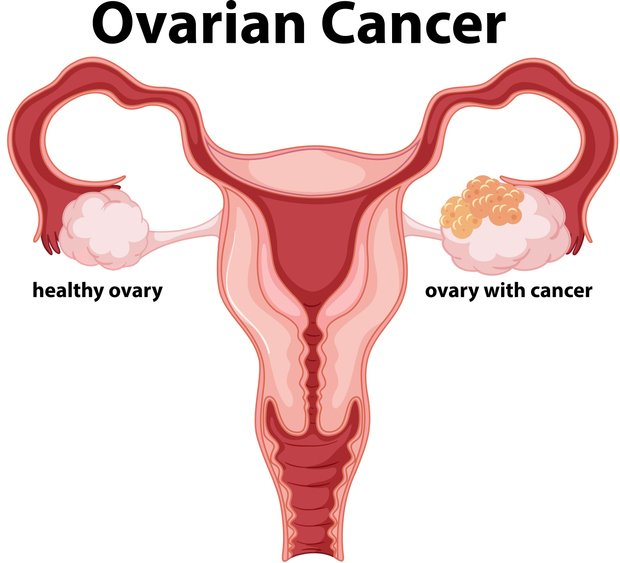In order to decrease our risk of developing cancer, many of us try to make healthy choices. We eat lots of green, leafy vegetables, avoid overexposure to sunlight, and cut down our intake of refined sugars and highly processed foods. We try to keep up with current research and follow its guidance as best we can. Unfortunately, however, when it comes to the risk to women of developing breast and/or ovarian cancers during their lifetimes, the likelihood that they will do so sometimes comes down not to the daily choices they make but to their own genetics.
What Percentage of Breast Cancer is Hereditary?
While exact data is hard to pin down, it is believed that between 5% and 10% of breast cancer cases are thought to be hereditary.
This doesn’t necessarily mean cancer itself is passed from parent to child, but that parents can pass down gene mutations to their children through the BRCA genes (BRCA1 and BRCA2). Those carrying these genetic mutations are at increased risk of certain cancers, including breast and ovarian cancers.
Understanding the BRCA Gene
When these genes function as they should be, all is well. Unfortunately, however, these genes are known to mutate, and these mutations can be passed down from parent to child.
BRCA1 (BReast CAncer gene 1) and BRCA2 (BReast CAncer gene 2) are genes that produce proteins that help repair damaged DNA. Everyone has two copies of each of these genes-one copy inherited from each parent… People who inherit harmful variants in one of these genes have increased risks of several cancers-most notably breast and ovarian cancer, but also several additional types of cancer. (Cancer.gov)
Given these realities, compared with the general population, people carrying the BRCA1 and BRCA2 genes should exercise increased vigilance to watch for signs and symptoms of developing breast and/or ovarian cancers.
While it’s not possible to self-identify whether you have the BRCA gene, testing is available to bring the truth to light.
Undergoing BRCA Gene Testing
Fortunately, the test for the BRCA gene is fairly straightforward. The BRCA test is a simple blood test, the results of which will help doctors determine whether you carry the BRCA1 or BRCA2 gene.
Unfortunately, the results of these tests aren’t always clear. While a positive result means you’ll need to work closely with your doctor to manage your cancer risks, a negative result does not necessarily mean you don’t carry the gene mutation. It could just mean your body hasn’t manifested the mutation in a way the doctors are able to discover at this time.
Depending on your medical history, a negative test result may come with the advice that you follow up with another test in the future.
Who Should Be Tested for BRCA?
These tests are fairly new, and when they were first released, they were limited to women who had a family history of breast or ovarian cancer.
More recently, however, guidelines and recommendations have been expanded.
In its most recent guidelines, published in August 2019, the group recommends that genetic counseling and, when appropriate, testing be offered to women who have previously been treated for breast or ovarian cancer to reduce their risk for second cancer, and to all women of Ashkenazi Jewish ancestry because they are at high risk for these mutations. (Cancer Today)
Currently, experts are seeking to expand testing protocols even further, arguing that identifying women who carry the gene only after they’ve been diagnosed with cancer reduces the effectiveness of cancer prevention.
Recognizing Symptoms of Breast Cancer
According to the Cancer Treatment Centers of America, though breast cancer is most often associated with finding a lump in the breast, there are other signs and symptoms to watch for.
- Breast pain
- Nipple bleeding or discharge
- Redness and/or swelling in any area of the breast
- Nipple takes on a flattened/caved-in appearance
While these symptoms do not necessarily mean you have breast cancer, they certainly should create cause for concern. If you are currently experiencing one or any of these symptoms, you should contact a healthcare professional right away.
Early diagnosis and treatment can be life-changing.
Recognizing Symptoms of Ovarian Cancer
Unfortunately, ovarian cancer often goes undiagnosed in its earliest stages. By the time women begin experiencing symptoms, their cancer may already be advanced.

Common symptoms of ovarian cancer include the following:
- Frequent urination
- Changes in bowel habits
- Abdominal bloating and/or swelling
- Quickly feeling full when eating
- Discomfort in the pelvis
- Rapid weight loss
If you are experiencing any or all of these symptoms, make sure you’re proactive about seeing a doctor as soon as possible. This is of particular concern if you know you carry the BRCA gene or if you have a family history of cancer.
The Bottom Line
Risks for both breast cancer and ovarian cancer can increase if you carry the BRCA1 or BRCA2 genes. While it’s not possible to know whether you carry the gene without consulting a doctor, safe and effective testing methods can uncover the answer and keep you more informed about the state of your health.
While it’s important for everyone to pay attention to their bodies, track any changes, and talk to their doctors about symptoms that could point toward potential breast cancer or ovarian cancer, it’s especially vital that those with a family history of cancer and those who know they carry the BRCA1 or BRCA2 genes to stay proactive.
Contact The Women’s Clinic
While no one wants to think about the possibility of cancer, early diagnosis can make a big difference. Don’t put off seeking help and care.
Here at The Women’s Clinic, we know these matters can be scary, and we’re here to help.
If you have questions or concerns about breast cancer or ovarian cancer, or if you would like to talk about any other health needs, please feel free to contact us here at The Women’s Clinic.
We look forward to meeting you, answering your questions, and serving you in any way necessary.
Schedule your appointment today!



 Close
Close